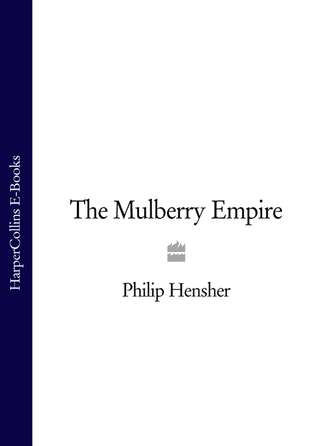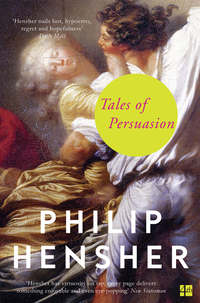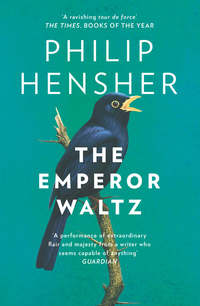
Полная версия
The Mulberry Empire
‘We need to know about the English,’ the Amir said again. ‘So send a boy down to the spy.’
The spy? The Mir Wa’iz went so far as to cast a gaze at the Newab Jubbur Khan, raising an eyebrow; perhaps the Newab would know what his brother the Amir’s intentions were. The Newab’s inscrutable way with a fistful of lamb, however, was most likely due to bafflement. Naturally the Newab would not want to admit that he, too, had no idea. But in a moment the Amir took pity on them.
‘We can hardly talk to the English about their ambitions,’ the Amir said. ‘And we will not talk to the Sikhs, to find out who is the tool of whom, like the tale of the monkey on the elephant’s back. But we seem to have a spy here. Very badly disguised, and he has made no attempt to come and speak to Us, so – a stinking spy it is. Gentlemen!’ The Amir clapped his hands, three times. His voice had shrunk to a whisper, and the noise in the bare throne room was explosive as gunshot. The gentlemen of the court came running at the handclaps, like birds magically called back to a branch. ‘Take this away. No food is required.’
The court froze, mid-chew; it was the grossest breach of etiquette to eat while the Amir had refused food, and they were left, suddenly, with cheek pouches full of meat, to swallow slowly without any evidence of chewing.
‘Send a boy down to him. Does he like boys? Not a commonplace boy, a boy of parts. Does he like boys?’ The Amir, now, was businesslike.
‘Yes, Pearl of the Age.’
‘Have one sent. Not too young. A remarkable boy. We will wish to talk to him afterwards. How old are your sons, Khushhal? How old is the most beautiful of them?’
The least of the nobles, called forward suddenly from the back of the crowd, twitched, terrified, at this direct appeal. His betters parted, let him through, gazed at him with solemn disbelief. He stuttered, nervously, unprepared.
‘In my eyes, Pearl of the Age—’
‘Yes, yes,’ the Amir interrupted. ‘Yes, very estimable, Prince. You know the son I mean.’
‘Hasan is seventeen, Pearl.’ Khushhal seemed unaccountably cast down. He had seven sons, the court remembered, or possibly eight.
‘Is he a sensible boy, cousin? Is he worthy?’
‘He is the finest steed in my stable, Amir, and I give him to any task of his lord’s willingly, knowing that he will succeed where many others, where many others—’ Khushhal was losing his way in the stately sentence, ‘—might to their Amir have brought failure and sorrow.’
Dost Mohammed seemed content. ‘Very well, excellent. Make him understand that he may have to do something beyond talking to the English about the Sikhs. Don’t tell him what to do, cousin – it wouldn’t do to shock the English out of countenance. Or out of bed, I mean, Khushhal?’ Everyone laughed at the Amir’s heavy joke, covering their mouths genteelly. ‘You’re certain he likes boys, the English spy?’
‘Yes, Pearl of the Age, quite sure.’
‘Well, let us see. Is it Friday?’
‘Friday, Amir,’ Khushhal said, overstepping himself. The Vizier had been trembling at the Amir’s coat-sleeves to make this announcement.
‘Have the people come to see Us?’
‘Naturally, Imperial One,’ the Vizier leapt in, urgent with his own grandeur.
‘Well, show them in. No, no, no more food.’
3.
Friday was, by decision of the Amir, set aside for any citizen of Kabul with a grievance to come and set it before the court. It was Dost Mohammed’s invention. None of his predecessors had carried out such a practice, as the scandalized nobility had muttered among themselves when it had become apparent that the young Sirdar – as he then was – was perfectly serious in proposing that any man at all might come and wear the court’s patience into rags with his trivial complaints. Only the Mir Wa’iz, however, had the nerve, as a licensed idiot whom Dost Mohammed liked to contradict, to say bluntly, ‘But no Amir before you, Lord of the Wind, has ever suggested such a thing.’
Dost Mohammed was ready for that, and reminded the court, and, particularly, the Mir Wa’iz (taking his sleeve firmly between thumb and forefinger and drawing the mullah’s face terrifyingly close to his own) that, although none of his predecessors had found it necessary to hold a weekly plebeian durbar, every single one of them had met a violent end. An end (beheading, hanging, dismemberment, crushing, and blowing into bits with gunpowder) which, the court would do well to remember, had invariably been meted out to the intimates of the Amir concerned at the same time. The court had swallowed, as one. All at once, precedent and the habitual practice of the court had seemed a much less important thing.
‘Remember,’ Dost Mohammed had said, exercising his imperial prerogative of a broad open unshielded smile, ‘it is only five hours, every Friday, a short afternoon of boredom for you, and my chance to speak to anyone who wishes to speak to me. And, in return, you probably won’t be murdered in the bazaar. Who knows? You might even come to be loved as much as Us.’
The court had swallowed again. Five hours! At most, they had envisaged one carefully selected and clean old man, allowed to sit at the far end of the throne room and abase himself for – surely ten minutes would be enough?
But the Amir had been in deadly earnest, and no one found it much consolation to go on thinking of the grim fates of various long-gone Amirs. Frankly, Khushhal for one sometimes thought, after an hour or two standing stiffly behind the mildly nodding Amir while an old man went on and on about his problems, a quick and merciful death might not be such a bad thing. Nor was it the smallest consolation that the Amir himself hardly seemed to look forward to these occasions with enthusiasm. Certainly, the court had suffered enough, and none of them would venture the slightest expression of sympathy at what had now become an official duty.
‘Well, well, show them in,’ the Amir said. ‘Quick, Jubbur, the grass – quickly now.’
The Newab came from the back of the crowd with his appointed task. The Amir settled himself on the upper step of the throne room, while the others drew back. He took a deep breath, and shut his eyes. Jubbur Khan now, concentrating, placed the three blades of grass he had been holding in the second fold of the Amir’s turban, five inches above his left ear. He examined his handiwork, then stepped away, feeling for the step with his heel as he walked backwards to his appointed place.
‘How many?’ Dost Mohammed asked, opening his eyes, rejuvenated.
‘Twenty, sir,’ the Vizier said, straight-faced. The Amir nodded, and in they came. There was a particular approach of the common people on these occasions: they walked in like sheep, driven in by the attendants’ impatient shovelling gestures. They could not look at the Amir, of course, and stared instead furiously at the floor. But their movements were sheeplike; they moved in odd little scurries and shuffling panics, all at once in one direction. Some preferred, it seemed, to cling to the wall like blind men, as if the mere open spaces of the throne room terrified them. They moved forward, haphazardly, loosely, their fear palpable. They made no sound but an occasional small mew of alarm. The court watched the progress, unamused. It was like watching a lot of inflated bladders being pushed along a floor. Finally, they were in place in a rough square. At the attendants’ double clap, they all fell on their faces, exactly as if praying.
‘First,’ Dost Mohammed said after the terrific ten-minute preliminaries had been got through.
First was a vile old man, as ever. The court rustled, not entirely certain, in fact, whether this particular vile old man hadn’t been here a month or two ago. He began to recite his troubles, in a long-drawn-out cracked singing voice, an old bell being beaten again and again; worse, like a bell being beaten by a deaf man, to whom the noise would mean nothing.
‘My son is the light of my old age, Amir, the staff on which I lean. Once I was the tree in whose shade he lisped and played, which protected his helpless infancy. And as the lives of men and women teach us, a reversal must come upon us, so that those we once protected with our superior strength must, as the years pass, grow to be stronger than us, and as we grow frail, we may rely on the strength of their arms and the love in their hearts, as they once relied upon ours. Such is the way of human life, lived as it is in a short spell between birth and death.’
The man made a small but rhetorically rather effective gesture at his shirt, as if preparing to rend it in his grief. You could see the man had been an admirable and successful storyteller, in his day, though now his voice quavered and he lost his place too easily. He gathered himself, and went on in his amazingly annoying voice.
‘Hear then, O Amir, how wrongly I have been treated, how contrary to all human dignity and proper family life! Can such ill-treatment ever have been borne by one poor, neglected old man? Can such suffering ever have been so wilfully, so cruelly inflicted by a son on his helpless father, since the annals of time were started? Can the ears of the great Amir ever have been soiled by the sorrowful retelling of a tale so shocking, of maltreatment so blatant? You see, Amir,’ the vile old man went on, dropping disconcertingly into prose after his formal encomium, ‘my son is an ironmonger, with his own shop, in the bazaar. And I was an ironmonger before him, and the shop was mine originally. So two years ago Ahmed, that’s my boy’s name, he said to me, one day as we were sitting peacefully over a pipe one evening, I think I want to get married. So I said to him, what do you want to do that for? Because, straight away, I could see trouble coming. So he said …’
The interminable story wound on, as the daughter-in-law said, so I said to her, and then he said, well; and the court stood stiff as pillars, and wondered at the fantastic patience of the Amir. When it had finally come to an end, the old man looked up, blinking, bewildered, hardly knowing any longer where he was. He had been entirely absorbed by the immense tale of woe and wrong, his eyes fixed on the carpet. Dost Mohammed gave a great cough and a nod, as if commanding a swordsman to scythe through the incredible knots of wrongs and misunderstandings which constituted this unremarkably dull life.
‘You have complained that your son wishes you to leave his house, which once was yours,’ the Amir said. ‘You say that the wish comes from your son’s wife, though her wishes can mean nothing if they are different from your son’s. You say, truly, that you yourself freely and without condition gave the house to your son, before he married, and the law is unable to help you. I have heard your story with great interest, and say this to you, old man. Know that the life of man is brief upon this earth, and the happinesses which man may attain are few, and the travails many. Therefore do not complain beneath your load like a bleating ass, but accept joyfully the will of your family as you would the will of God. Go back to your son and say humbly that you deserve nothing, since you gave your love to him freely, and without hope of recompense. Say this to him humbly, in Our name, and if he should remain obdurate, you must accept what he has said, and throw yourself on the mercies of the bountiful world. That is all.’
The old man lurched backwards onto his feet, his knees cracking hugely, and, his eyes still cast clumsily downwards in his inexpressive walnut-face, shuffled back to the last row of the company of hapless supplicants. The Vizier called out the name of the second visitor.
Dost Mohammed relaxed, now, giving the supplicants a fine open smile. Around him, the court hardened, fingering their robes. He guessed most of them would prefer never to have to listen to such lowly men at such length. The Amir didn’t much care about that. He meant them, a little, to be bored, but, in the main, he wanted them to be insulted. If the Amir was happy to listen to the common people, dressed in their heavy brown robes, to listen to them talking at whatever length they chose, what was the point of serving in the court? What honour could possibly reside in being the noble designed by ancient custom to hand the Amir his rice, if any Kabul ironmonger could just as easily whisper in the Amir’s ear, simply by turning up on a Friday morning? Dost Mohammed understood very well that, unlike all those Amirs who had ended so badly, he had no friends, and could not; between the family of the Amir and the rest of Kabul, there was an absolute gulf. What had happened to the kings who hadn’t understood this? Shah Shujah, the fool, had immured himself and his court up, and delighted the court with his enclosed fantasies, his entertainments; flattered them with excess. And he was long gone, that old Amir, with his court, long chased out; and now Dost Mohammed was the Amir, and Shah Shujah was, no doubt, in a palace on some Kashmiri lake, disconsolately torturing some small boy to death for the sake of an afternoon’s entertainment. Dost Mohammed would not flatter his court with ideas of aristocratic and regal equality; he would insult them by making them see that, in his eyes, the greatest prince and the merest citizen of Kabul were as one. That was the point of the Amir’s Fridays. Not to right wrongs, as if the life of great princes were a tale to keep children quiet, but to remind the court, to their helpless indignation, that he, Dost Mohammed, was Amir, with three blades of grass in his turban, and they, the great princes of the court, they might as well be grovelling down there on the carpet, waiting with aching knees to be summoned at their Emperor’s whim.
Four hours later, the court was stiff with outrage as a fistful of knives. Dost Mohammed was serene as ever. The pack of mendicants, unanswered and yet somehow satisfied, made their sheeplike progress, backwards, shepherded by the court attendants, out through the double door. As they receded from the awe-struck anteroom into the more distant of the outer chambers, their chatter could be heard to break out again by degrees, merging into the irreverent cackle of starlings in the trees in the courtyard. In a moment, the room was again quiet. Dost Mohammed was thinking, and when he spoke, it was clear that nothing in the previous four hours had occupied much of his mind.
‘Send down the boy, Khushhal,’ he said briefly. ‘Today or tomorrow. He should stay there a week, and come and tell Us everything next Saturday. You know the particular boy? Good.’
‘Does the Amir wish to speak with my son before—’
The Amir shook his hands almost irritably at this absurd suggestion. Khushhal had taken the precaution of passing a note to an attendant summoning the boy, and he was at this moment standing in his best and simplest clothes two rooms away, trembling with nerves, no doubt. Still, it did no harm, that sort of thing. Had the Amir suddenly decided to inspect the boy’s teeth – the Amir’s own being so bad – it would not have done to ask him to wait on the pleasure of a seventeen-year-old boy.
4.
You know the one I mean, the Amir had said, querulously, as if it were absurd that anyone should think of another son. And as the court swept past the deeply bowing youth in the third anteroom, shrinking back into one of a file of attendants lining the little route between the throne room and Dost Mohammed’s suite of apartments, it was clear from the suddenly drawn eyes, the suddenly checked pace of half the court that they knew the son he meant, too. Dost Mohammed himself gave no sign of recognition in his purposeful stride, but, behind him, the nobility, normally so regulated, cannonaded each into each, tripped over each other as they caught sight of Hasan. For a moment they forgot how to walk. Khushhal himself had no idea. Well, he knew about the boy’s beauty, but he had no idea the fame of it had spread beyond the family into the city, and wasn’t entirely sure he liked the idea of his son being gazed at in the street, being the cause of lost sleep, being importuned to surrender what virtue, at seventeen, he still possessed, as if he were some bazaar-boy and not the son and grandson of princes. Still – Khushhal reflected – he himself had been famous, in his day (he relished the memory, twenty years back, of a trader at his shop abandoning a transaction and, open-mouthed, clambering up on a chair for a better view). If Hasan could be of use to the Amir, that, at any rate, was a more virtuous and useful end than, as Khushhal had, only using his God-sent gift of beauty to satisfy the lower urges with every bazaar-boy in Kabul, the heavens forgive him.
Hasan, at seventeen, was famous. Of course Dost Mohammed could only mean one of Khushhal’s sons. He meant the one who was an angel. Hasan, alone among the sons, was an angel. He had been so beautiful as a baby, as a boy, that his mother had feared for him, knowing that beautiful children often coarsen as they grow older, become overblown like a July rose, their temperament uncertain as they grow too accustomed to the regular supply of love. And when love as it must proves no certainty, they are not resigned to the fact, but are shocked and angry at the seeming injustice. She had veiled him for a time, like a girl baby, to keep off the demons his beauty would summon. Had those demons come? For beautiful children, love occupies too central a place in their mind, pushing other thoughts, wisdom, understanding to the edge, if not altogether out of their thoughts. We are not made for love alone. Love, in the end, is the prerogative of God, the force of whose love we glimpse in shadow, and dimly, when a man loves another. It is, perhaps, only those who for the first decade of their lives have been loved universally and without conditions, on account of their beauty, who go on believing the central fact of their life remains to love and be loved. Those lucky, unlucky people, so secure only in their insecurity, remain as they once were all their lives only in one respect: they always remain children.
The mother of Hasan said some of these things, and thought all of them, confiding the whole only in her prayers. How could this earthly angel not come to harm? But Hasan grew, and the light still shone beneath the soles of his feet as he lightly trod God’s earth. With each year, he remained beautiful; with each year, he became beautiful in a different way, since the beauty of a child is a changing thing, even when it is most constant. She never mentioned his name, never, never, in any context, for any purpose, without casting a net around his beloved skin by afterwards slipping in a ‘God willing’. It was so fragile, the radiant beauty which cushioned his steps, and nothing could touch, nothing, not even Time, could destroy it.
Khushhal had made a quick palms-down gesture and a hiss as he passed the boy, wanting him to stay where he was until Khushhal, with the court, had accompanied the Amir to the door of his apartments. The worst of his wives, the lewd contemptuous one, had been waiting there for the Amir; not respectfully, but waiting as if to insult him.
‘Dosto,’ she sang out the second the doors were opened, though she could have no doubt that the court was waiting just there for their dismissal. ‘I’ve been waiting for you for the whole day.’ She had an infuriating voice, with her drawling Suddozye-princess vowels. She had been a prize at the end of one of those footlingly interminable, brutal scraps with the Suddozye pretenders, and never missed a chance to display her contempt of the whole court and the Amir himself before the entire establishment – before Kabul, before the English ambassadors, if she could. Why the Amir didn’t simply toss her down a well …
‘I’ve been—’ the Amir sheepishly said.
‘I don’t care,’ came the voice. ‘Shut up with old women and bores and your sisters all day long. And you with your bores, I expect. Well, I need you here, now. I’ve lost my slippers, and you’re the only one who can find them for me. I need them now, slave.’ Her voice raised to a shrill little shriek with this last astonishing demand, and the court began to shuffle away in embarrassment, not even waiting for their dismissal. The Amir seemed oblivious of where he was.
‘Yes,’ he said, giggling a little. ‘Mistress.’
‘What did you say?’ the princess called. Her voice was cool and affectless as an unwearied dove’s. ‘Dosto? Slave?’
‘Yes, mistress,’ the Emperor said, more clearly, and then, suddenly, seemed to become aware again of the court. ‘That will do,’ he said briskly, dismissing his public humiliation. ‘I am not to be called upon.’
5.
The court scattered in overpowering embarrassment, almost before the double doors had swung shut on them. Khushhal found his way back to the anteroom where the boy Hasan still stood, waiting nervously. He beckoned to his son with the underside of his palm, a small flapping gesture, and together they walked through the mid-afternoon quiet of the palace’s public rooms.
‘Was that the Emperor?’ Hasan said after a time. He seemed nervous; but he usually seemed nervous, shrinking back within his skin from the unpredictable effects he had on people.
‘Have you never seen him?’ Khushhal said.
‘I think I have, years ago, when I was too small to know whom I was meeting and too long ago to remember his face afterwards. Of course I know the noble Akbar the Emperor’s son. Or I know who he is, not know him to be greeted by him. But I wasn’t sure of his father the Emperor.’
Khushhal gave him a sideways glance. ‘The Amir knows you, it seems. Or he has seen you, at least.’
‘I don’t know when that can have been,’ Hasan said reflectively, ‘for it’s not to be expected that the Amir’s life and mine take similar paths. He is not as I thought he would be.’
‘It is not for you to think how the Amir will appear, or consider what so great a man as he should be like,’ Khushhal said. Then he relented, as, with Hasan, he usually did relent, and said, ‘Of course, no one could expect you not to wonder what Akbar’s father would be like. They talk – at least the Amir talks – of sending Akbar as ambassador to the English in London.’
‘What for, father?’
‘I don’t know. I really don’t know. Perhaps the Amir has a lot to discuss with the English, and after all, they paid him the compliment of coming to visit him, so it would only be polite to send an ambassador to them with gifts, in return.’
Hasan’s attention had been drawn by a merchant of cloth, bringing materials into the fortress of the Bala Hissar. By now, they had passed beyond the state rooms and were in the outer shell of the palace, which resembled a market as much as anything, as the tradesmen of the city came to service and supply the court and the palace guard. An oddly silent market; when a baker, now, laden with the bread for the household, collided with a butcher with a bound calf over his shoulder, neither made the smallest protest as they surely would have outside, but walked away briskly, humbled and silenced by the sudden importance of their roles, the gravity of the shady palace. The cloth merchant was a little man, and waddled before three apprentices, meandering helplessly as they half-ran behind him, arms stretched out under the weight of brilliant bolts of rough silk, red and blue and gold. Hasan’s attention was taken like a child’s with a cloud of hummingbirds. Then he shut his mouth and said, ‘Where is London?’
‘Where the English live, who rule India,’ Khushhal said, despairing a little. ‘Though England is far away in one direction and India far in the other direction, beyond the great mountains beyond the empire of the Amir. Do you remember the English, when they came last year, when they lived with the Newab Jubbur Khan for a month, and brought the marvellous clock, the clock of gold and crystal?’
‘I remember,’ Hasan said, dimly. ‘Those English, they looked nothing like the merchants from India, the ones who come in the spring.’ Then he brightened, as if sunlight had fallen on his face, and said, ‘There is another English in the city, though he is dressed strangely, and talks strangely, the women say. Is he perhaps a Russian, that Englishman?’








